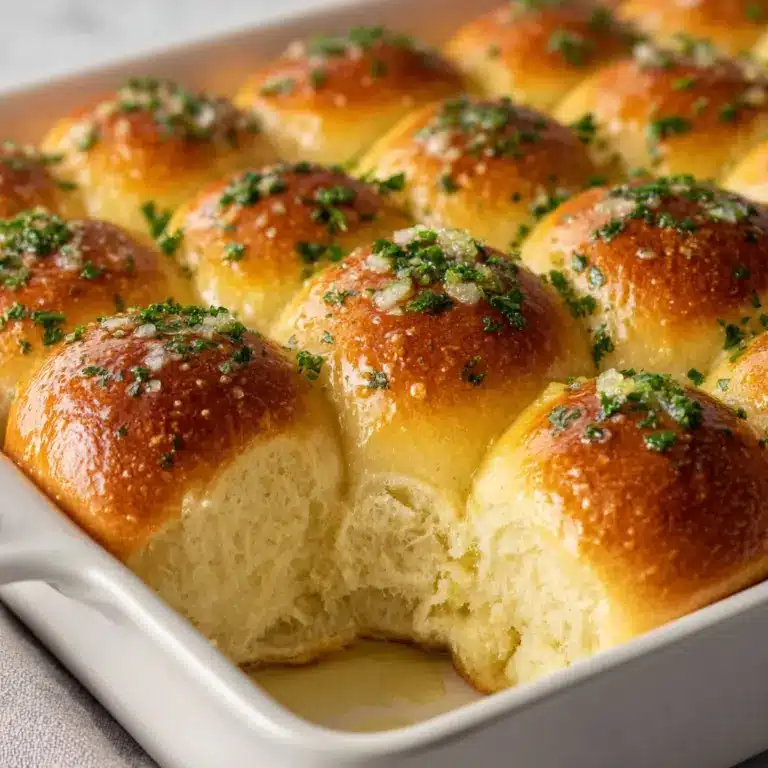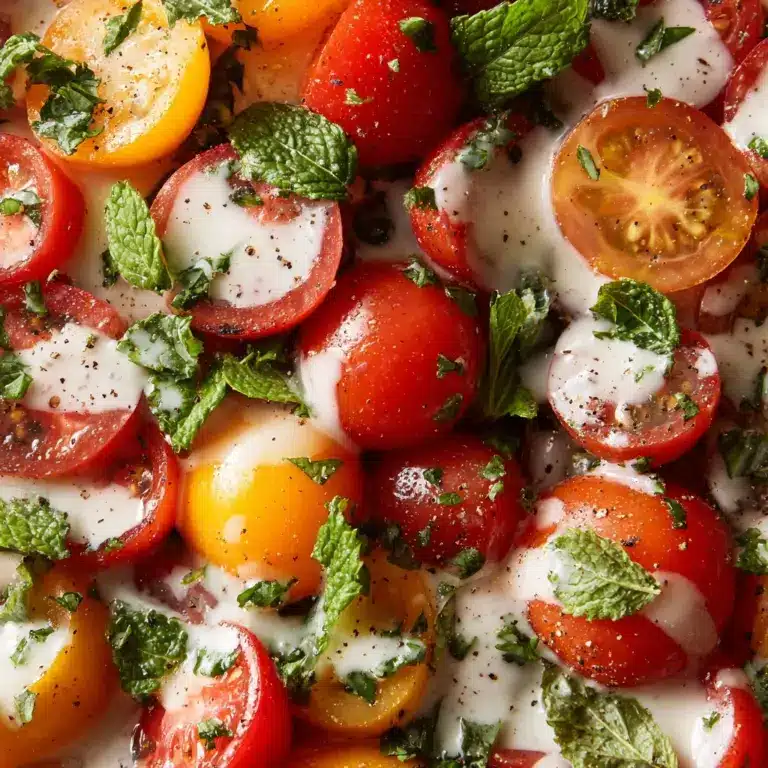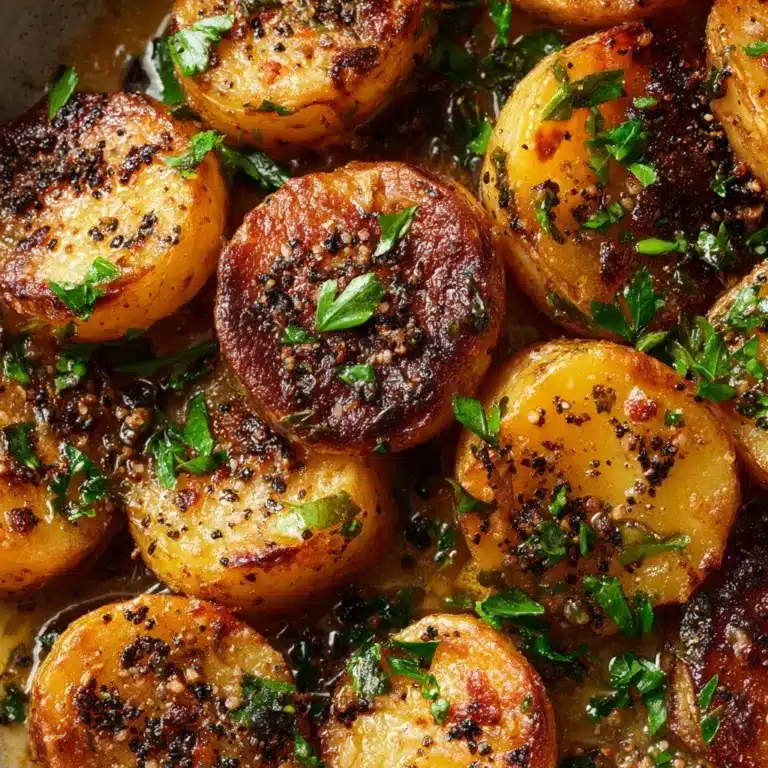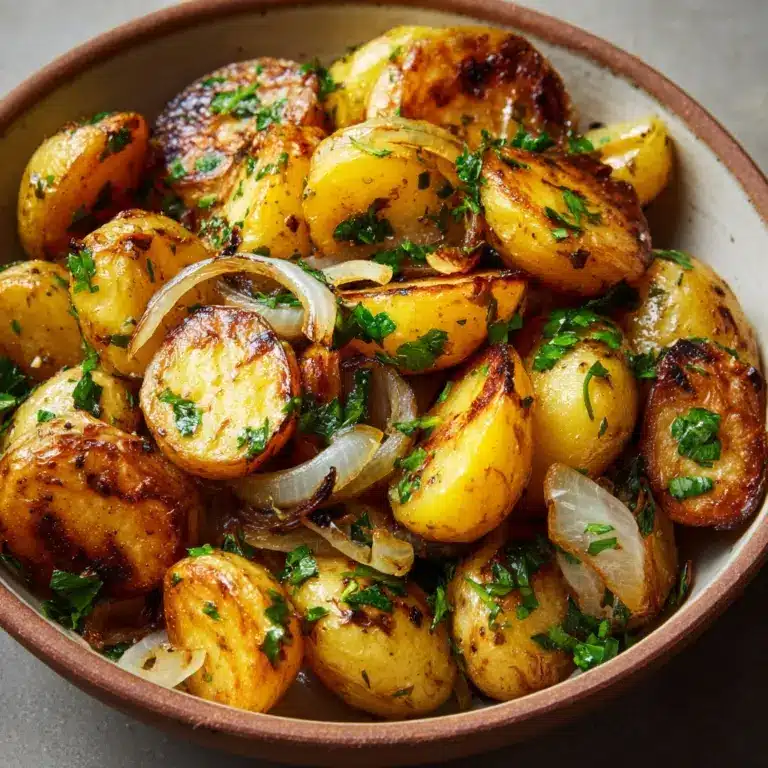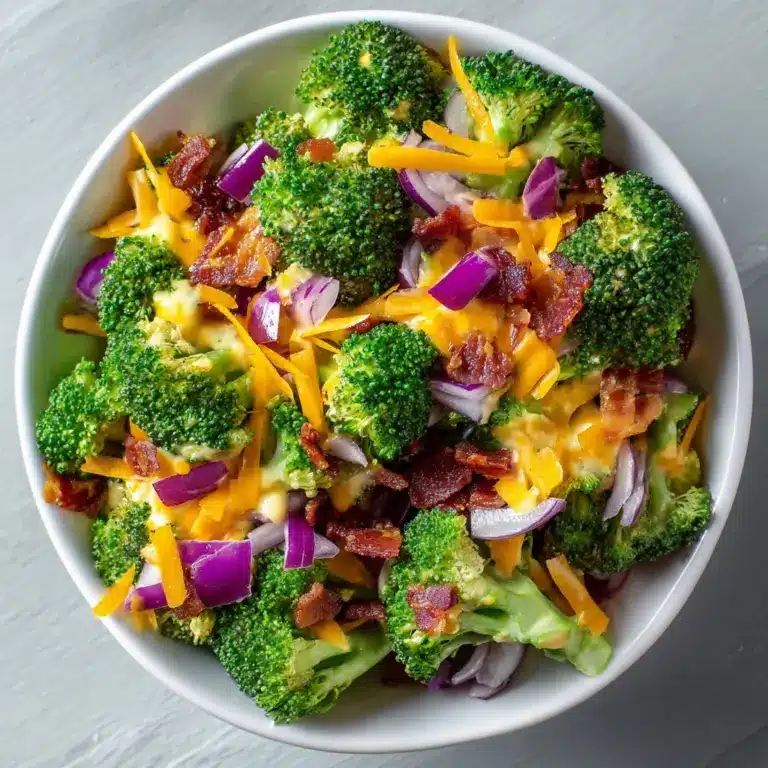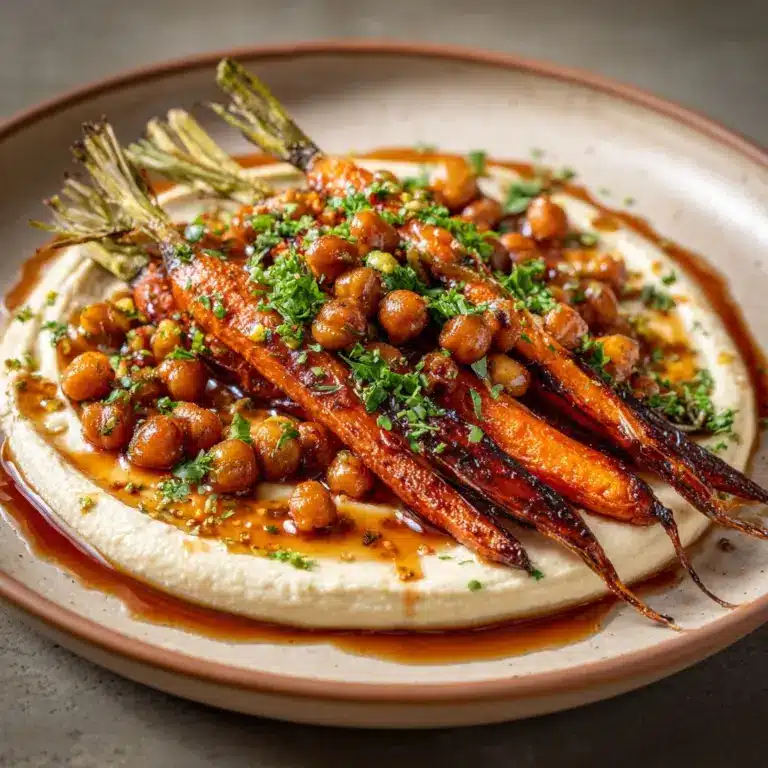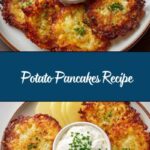Potato Pancakes Recipe
If you’re looking for a recipe that’s equal parts comforting and crowd-pleasing, you can never go wrong with Potato Pancakes. Golden and crispy on the outside, yet wonderfully tender on the inside, these delightful little cakes bring together rustic flavors and irresistible crunch in every bite. Whether you grew up calling them latkes or just discovered their magic, Potato Pancakes are a universal favorite that transform humble ingredients into something truly special. Whip them up for breakfast, lunch, dinner, or even as a late-night snack—once you’ve tasted these, you’ll want to make up reasons just to fry another batch.
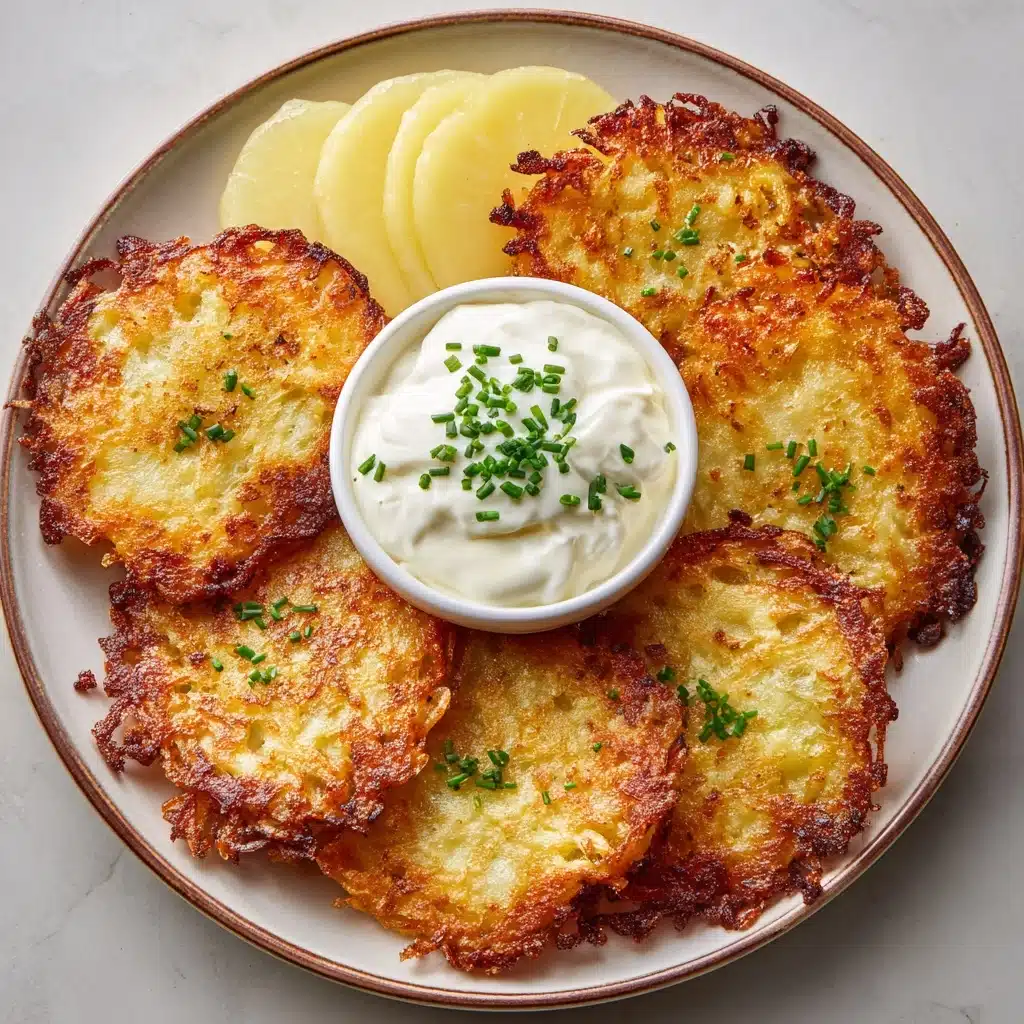
Ingredients You’ll Need
This classic dish proves that simple ingredients, when prepared with a little care, create the most memorable flavors. Each component lends a distinct taste or texture—don’t skip a thing for the full homemade experience!
- Russet potatoes: Their starchy flesh gives the pancakes great structure and that signature fluffy yet crisp bite.
- Onion: Adds subtle sweetness and a savory depth that complements the potatoes beautifully.
- Eggs: Bind everything together, ensuring your pancakes hold up while frying.
- All-purpose flour: A light dusting of flour helps create a cohesive, golden crust on each pancake.
- Baking powder: Just a pinch promises a lift, making the centers fluffier instead of dense.
- Salt: Essential for bringing out all the earthy, rich potato flavor in every bite.
- Black pepper: A little pepper adds nuance and gentle heat that elevates the classic taste.
- Vegetable oil: High-heat safe oil is key for achieving a crisp, golden finish on your pancakes.
How to Make Potato Pancakes
Step 1: Prep and Squeeze the Vegetables
Start by peeling and grating your russet potatoes and onion. A box grater works wonders, but a food processor will save time. Once grated, wrap them up in a clean kitchen towel and squeeze out as much liquid as you possibly can—this is the secret to ultra-crispy Potato Pancakes. Too much moisture will make your batter soggy, so don’t be shy with the muscle here!
Step 2: Mix Up the Batter
Transfer your squeezed potato and onion mixture into a large bowl. Add the beaten eggs, flour, baking powder, salt, and black pepper. Mix everything until just combined. Don’t overmix—you only need to combine until you no longer see dry flour streaks. You want the batter to hold together but not be gummy.
Step 3: Fry to Golden Perfection
Pour about 1/4 inch of vegetable oil into a large, heavy skillet and place over medium-high heat. When a bit of batter sizzles on contact, you’re ready to fry. Scoop roughly 1/4 cup of the potato mixture per pancake into the skillet and gently flatten with the back of your spatula. Fry for 3 to 4 minutes on each side, or until each pancake is deeply golden and crispy.
Step 4: Drain and Serve Hot
As each batch finishes, transfer the Potato Pancakes onto a paper towel–lined plate. This drains off any excess oil, so they stay gorgeously crisp instead of greasy. Serve them as soon as possible—Potato Pancakes are best enjoyed piping hot, with a dollop of sour cream or applesauce on the side.
How to Serve Potato Pancakes
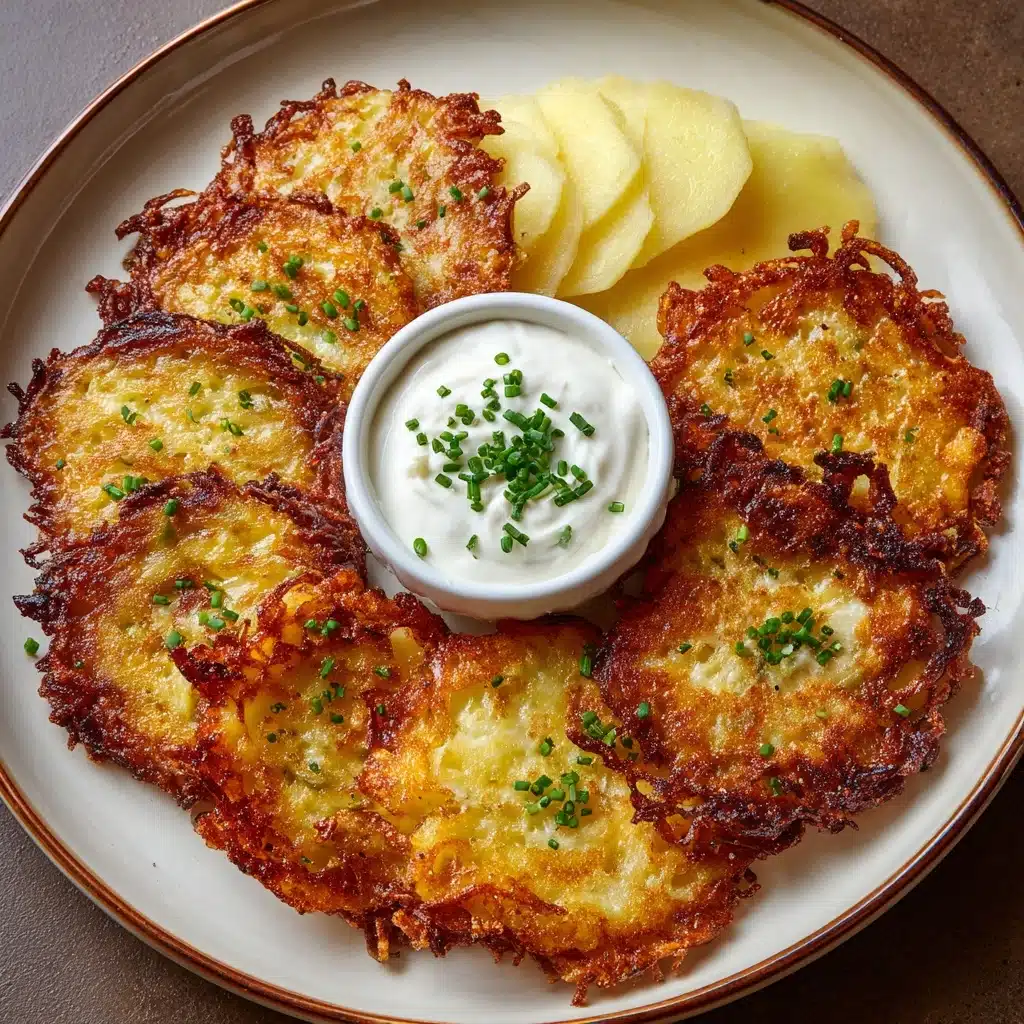
Garnishes
You can never go wrong with classic toppings. A spoonful of cool, tangy sour cream or a dollop of applesauce brings simple Potato Pancakes to life. If you’re in the mood for adventure, try adding chopped chives, a sprinkle of smoked salmon, or a drizzle of herby yogurt sauce for an extra burst of color and flavor.
Side Dishes
Potato Pancakes play well with so many accompaniments. For brunch, pair them with eggs cooked your way and fresh cucumber salad for a complete meal. At dinnertime, serve them alongside roasted chicken, sautéed greens, or even a light tomato salad. They also shine as a party appetizer—just make them bite-sized and your guests will go wild.
Creative Ways to Present
Think beyond the plate! Stack Potato Pancakes tall with layers of smoked fish and crème fraîche for a stunning starter. Turn leftovers into the base for breakfast eggs benedict, or slice them into strips and top salads for irresistibly crunchy croutons. Their golden color and crispy edges look amazing however you choose to present them.
Make Ahead and Storage
Storing Leftovers
If you find yourself with extra Potato Pancakes (though it’s rare!), simply let them cool completely and place them in an airtight container. Store in the fridge for up to three days—they’ll keep their great flavor, though you may need to revive their crispiness when serving again.
Freezing
Potato Pancakes freeze like a dream! Arrange cooled pancakes in a single layer on a baking sheet, freeze until solid, and then transfer to a zip-top bag. Tuck them away in the freezer for up to two months, and enjoy a taste of homemade comfort food whenever the craving strikes.
Reheating
To bring back that crispy texture, skip the microwave. Instead, arrange your Potato Pancakes on a baking sheet and heat in a 400°F (200°C) oven for about 10 minutes, flipping halfway. This method makes them almost as good as freshly fried, with crunchy edges and a warm, fluffy interior.
FAQs
Can I use other types of potatoes for Potato Pancakes?
Absolutely! While russet potatoes deliver the classic crispy edge, Yukon Golds create a creamier interior and still fry up beautifully. Try a mix for the best of both worlds!
How do I keep Potato Pancakes crispy after frying?
The best trick is to lay the pancakes on a wire rack set over a baking sheet instead of stacking them. Keep them warm in a low oven (around 250°F/120°C) until ready to serve—this keeps the texture perfect.
Are Potato Pancakes gluten-free?
The traditional version uses all-purpose flour, but you can swap in a gluten-free flour blend without sacrificing taste or texture. Just check your baking powder is gluten-free as well.
Can I prepare the batter in advance?
It’s best to fry the pancakes soon after mixing to prevent the potatoes from turning brown. If you must prep ahead, keep the grated potatoes and onion submerged in cold water, then drain and squeeze just before mixing with the remaining ingredients.
What’s the difference between Potato Pancakes and latkes?
The terms are often used interchangeably, but traditional latkes sometimes include matzo meal instead of flour and are a beloved part of Jewish holiday cuisine. Both are equally delicious and share that craveable crispy perfection!
Final Thoughts
There’s just something magical about making Potato Pancakes from scratch—the sizzling sound, the comforting aroma, and that first crunchy bite are pure happiness. Give this recipe a whirl and fill your kitchen with warmth, laughter, and (of course) irresistible Potato Pancakes. You’ll never look at potatoes the same way again!
Print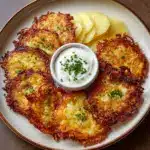
Potato Pancakes Recipe
- Total Time: 35 minutes
- Yield: 12 pancakes 1x
- Diet: Vegetarian
Description
These Potato Pancakes are crispy on the outside, fluffy on the inside, and bursting with savory flavors. Perfect as a side dish or appetizer, this Eastern European classic is a favorite for any occasion.
Ingredients
Potato Pancakes:
- 4 medium russet potatoes, peeled and grated
- 1 small onion, grated
- 2 large eggs, beaten
- 1/4 cup all-purpose flour
- 1/2 tsp baking powder
- 1 tsp salt
- 1/4 tsp black pepper
- Vegetable oil for frying
Instructions
- Prepare the Potato Mixture: Squeeze out excess liquid from grated potatoes and onion. Combine with eggs, flour, baking powder, salt, and black pepper.
- Fry the Pancakes: Heat oil in a skillet, scoop potato mixture, flatten in the skillet, and fry until golden brown and crispy.
- Serve: Drain excess oil on a paper towel-lined plate and serve hot with sour cream or applesauce.
Notes
- For extra crispiness, ensure to remove as much moisture as possible from the potatoes.
- Yukon Gold potatoes can also be used for a creamier texture.
- Prep Time: 15 minutes
- Cook Time: 20 minutes
- Category: Side Dish, Appetizer
- Method: Frying
- Cuisine: Eastern European, American
Nutrition
- Serving Size: 1 pancake
- Calories: 110
- Sugar: 1 g
- Sodium: 170 mg
- Fat: 6 g
- Saturated Fat: 1 g
- Unsaturated Fat: 4 g
- Trans Fat: 0 g
- Carbohydrates: 12 g
- Fiber: 1 g
- Protein: 2 g
- Cholesterol: 25 mg
